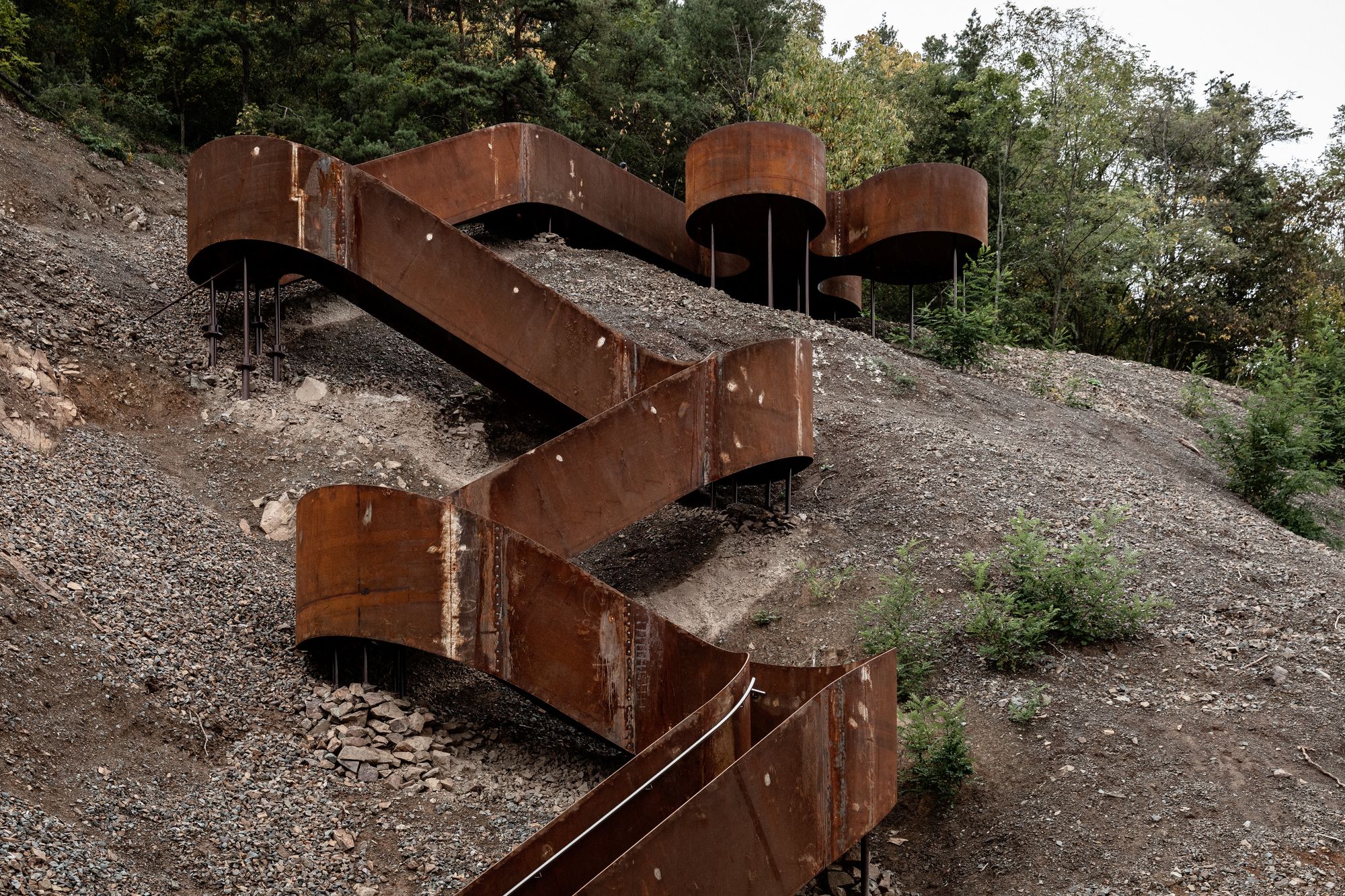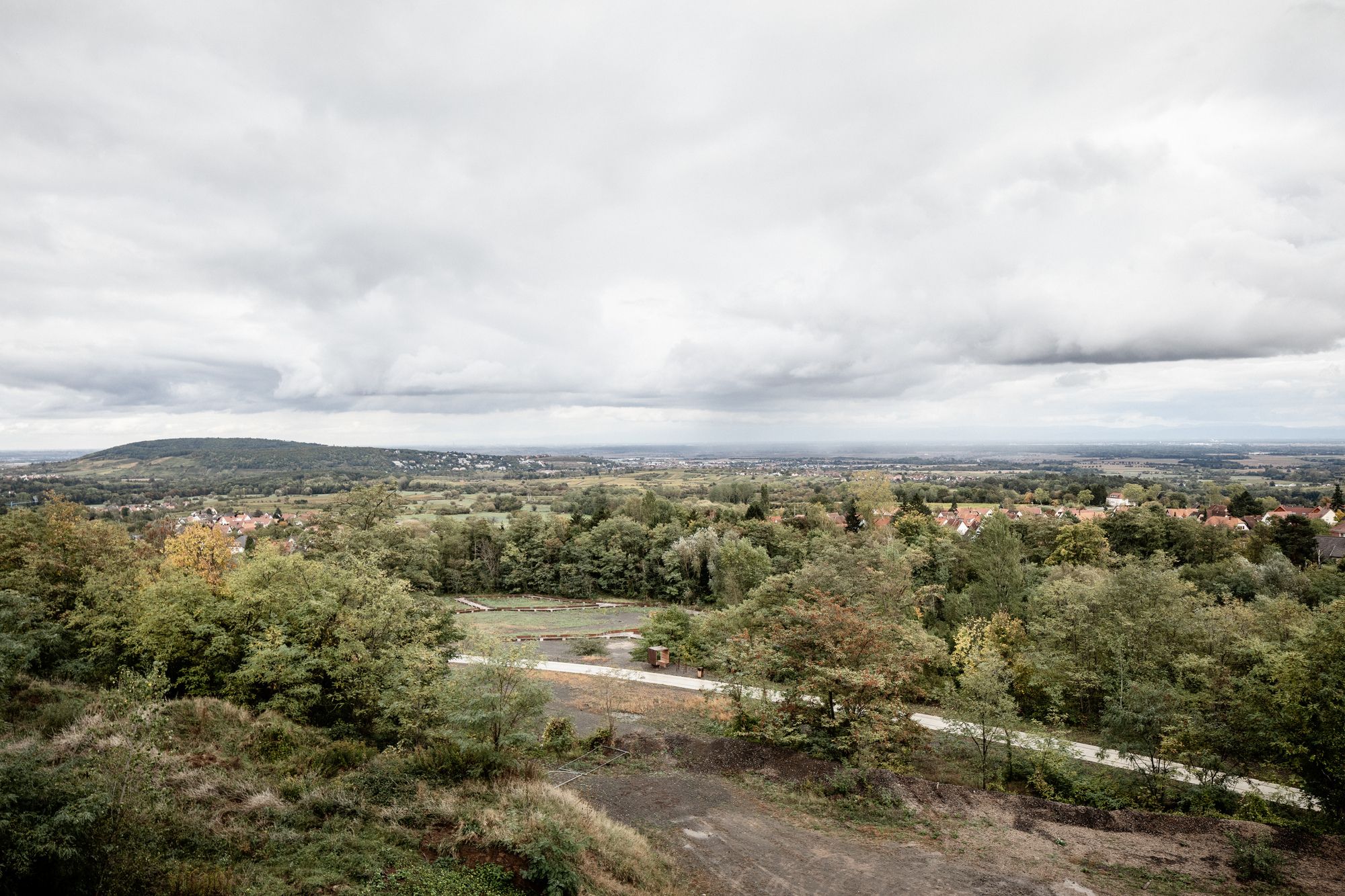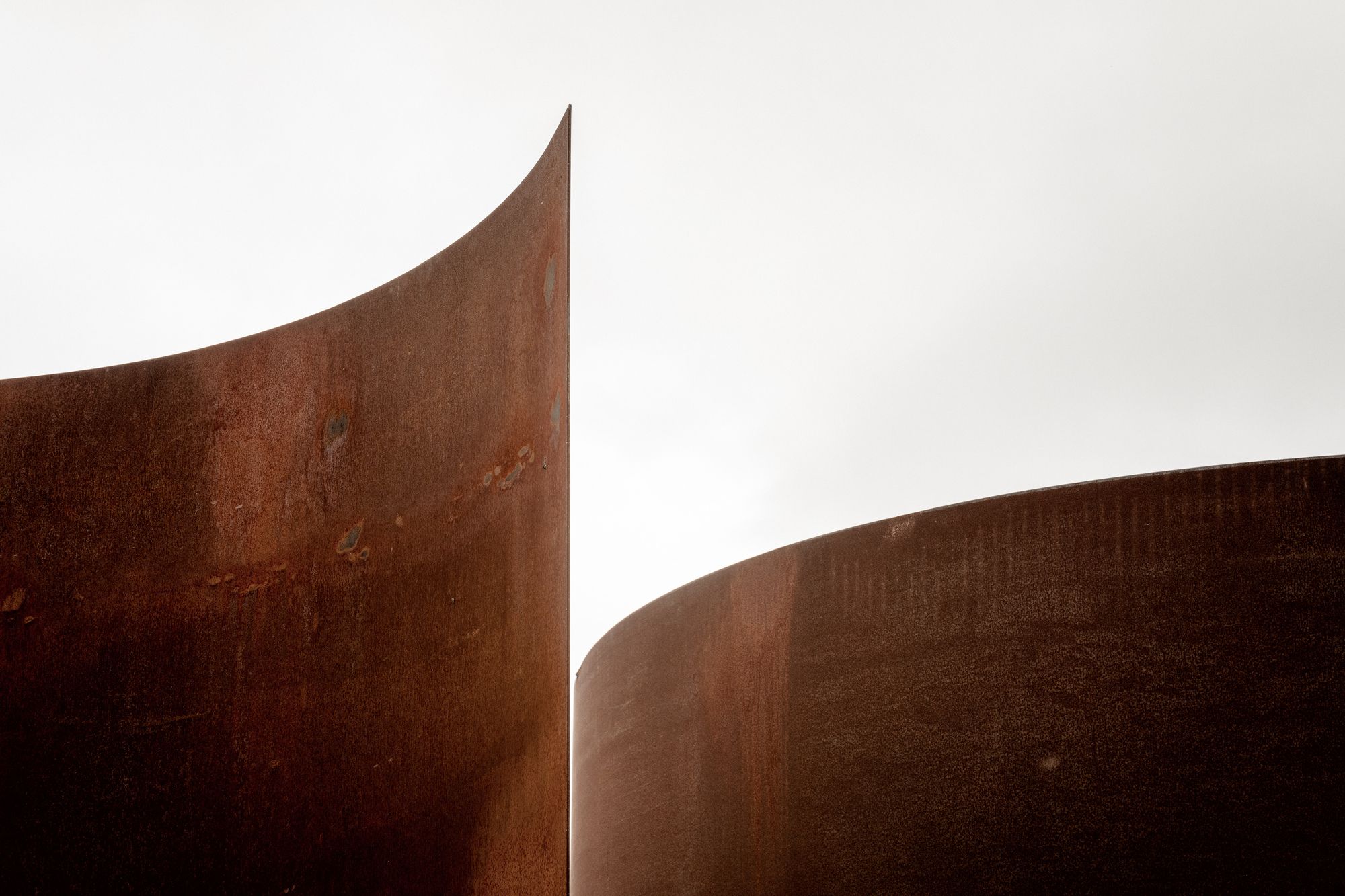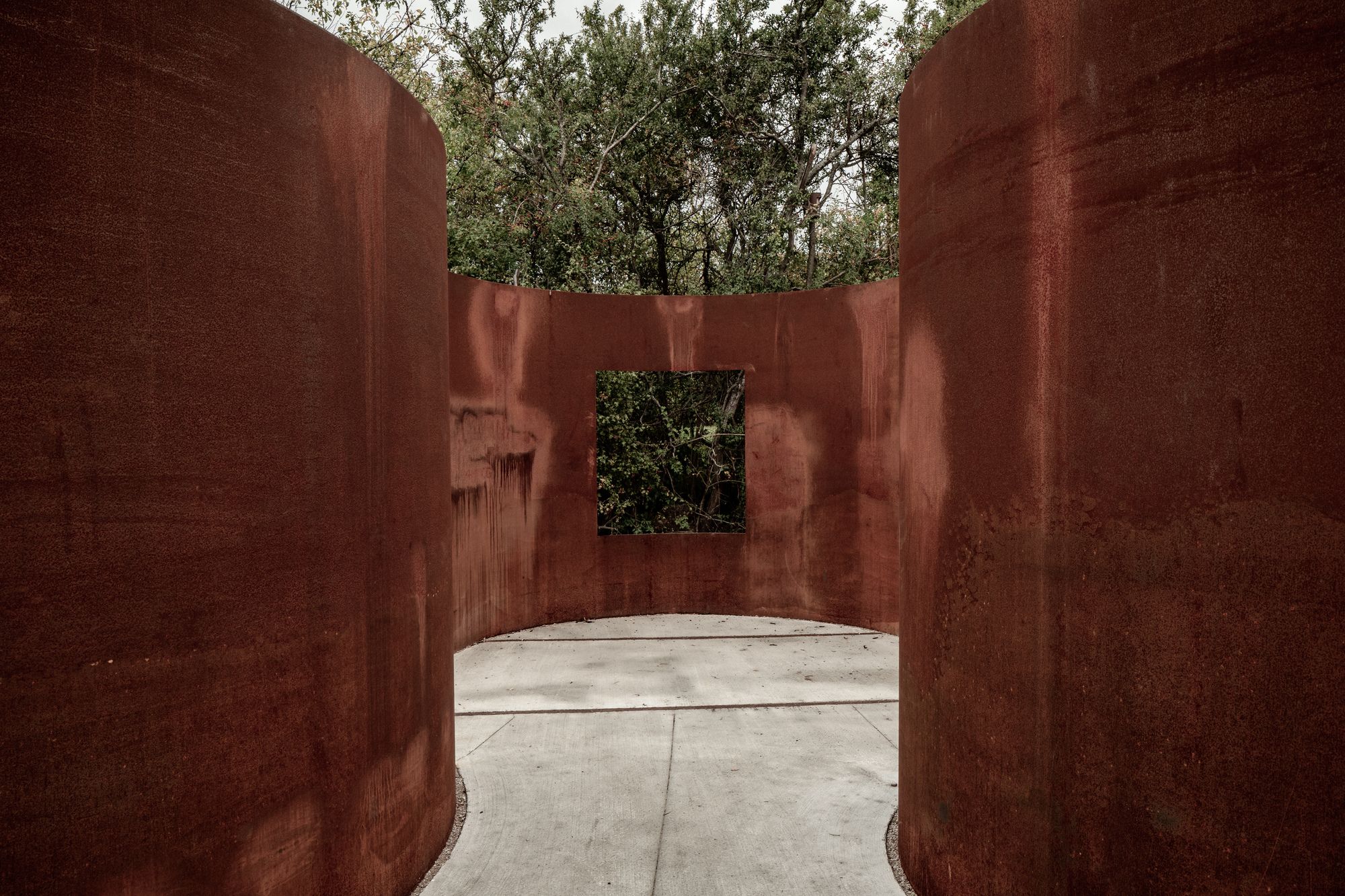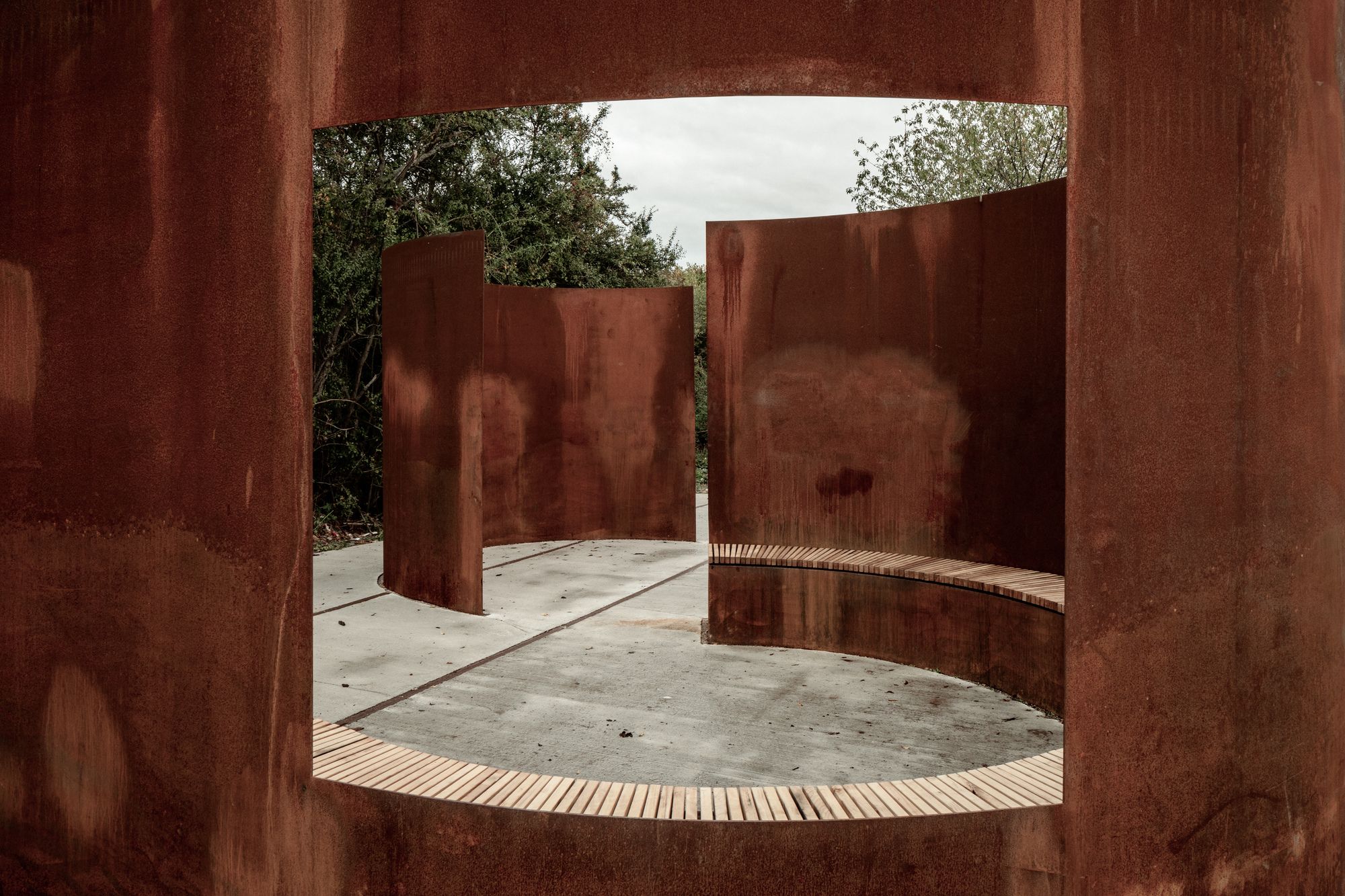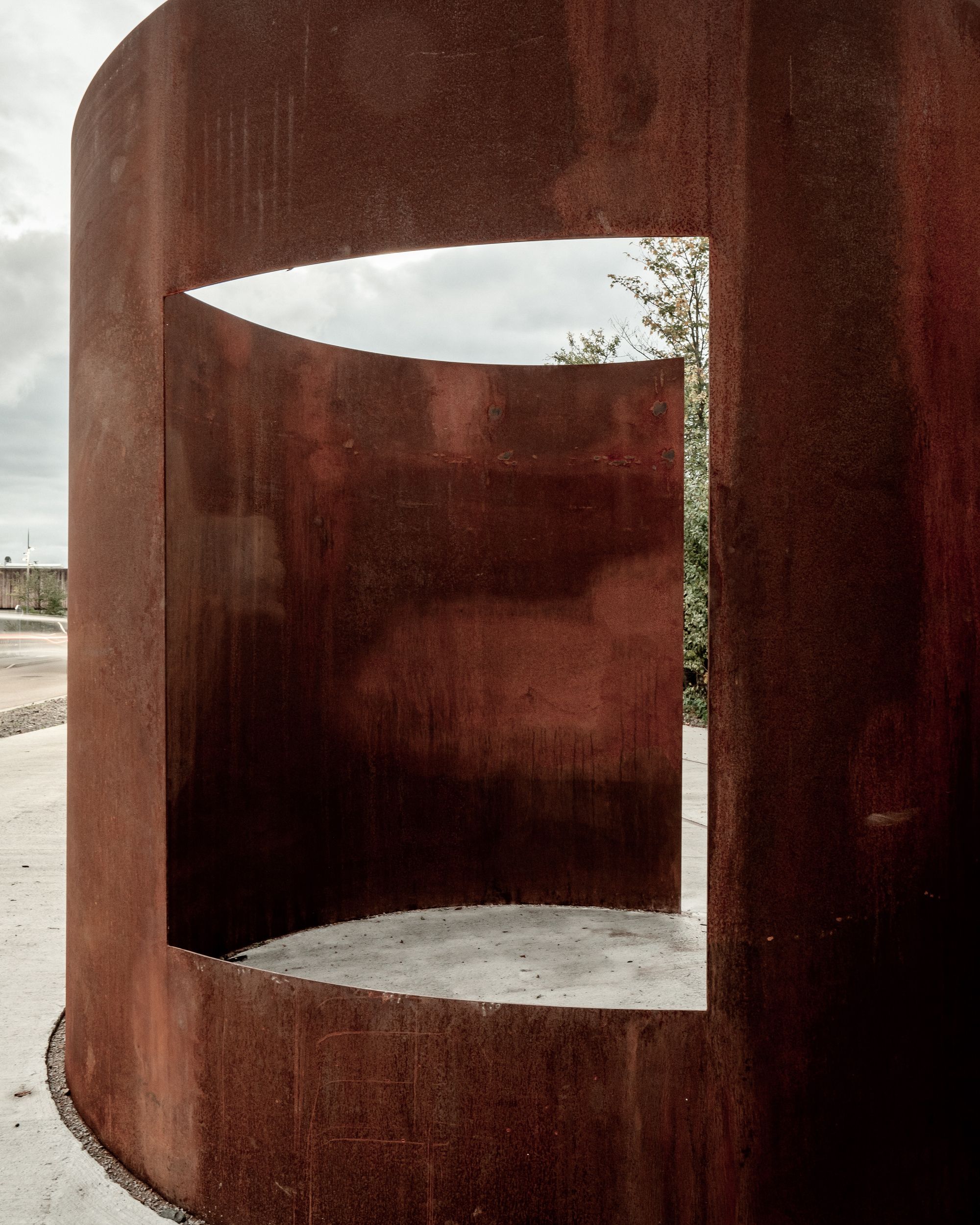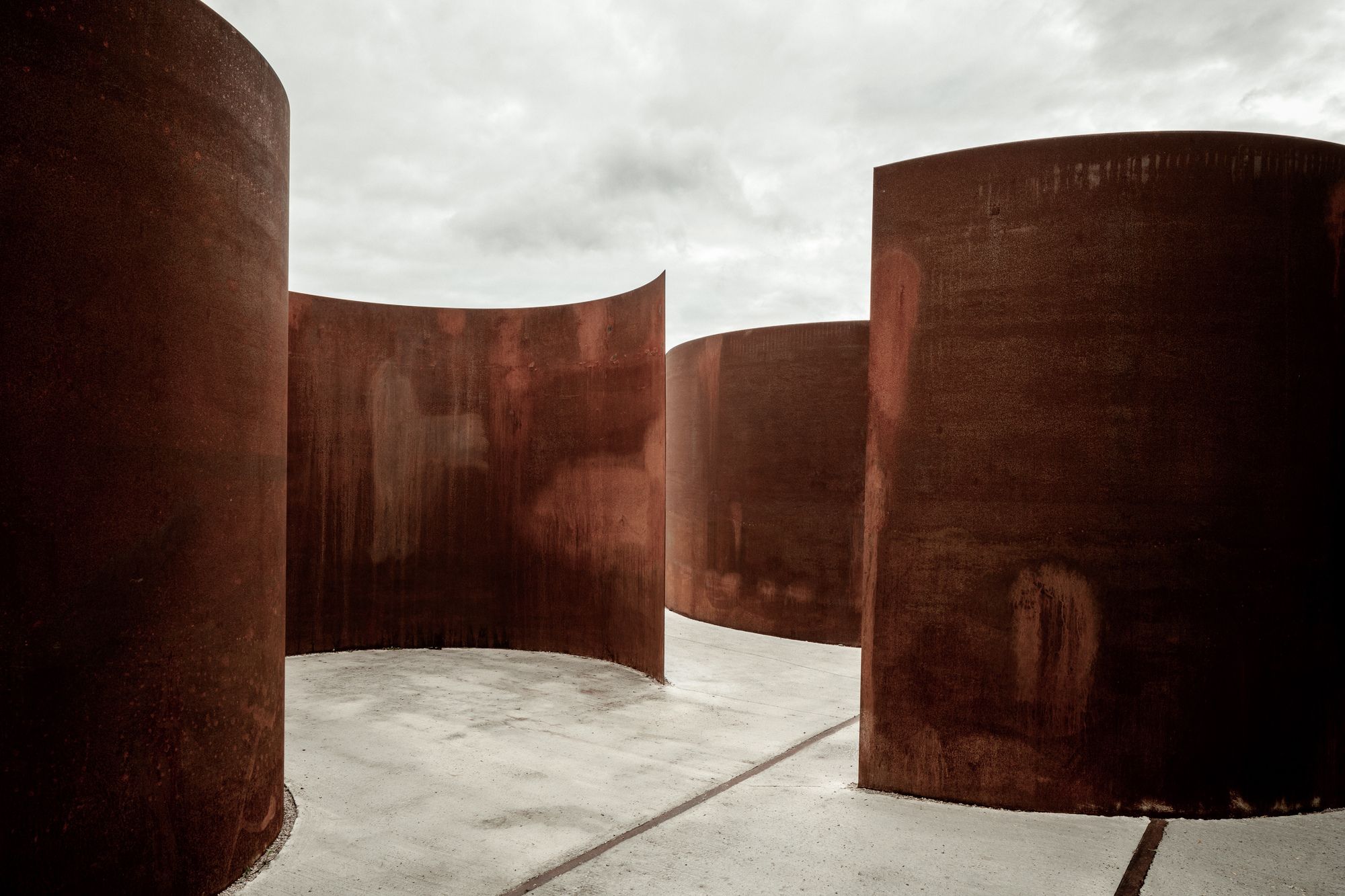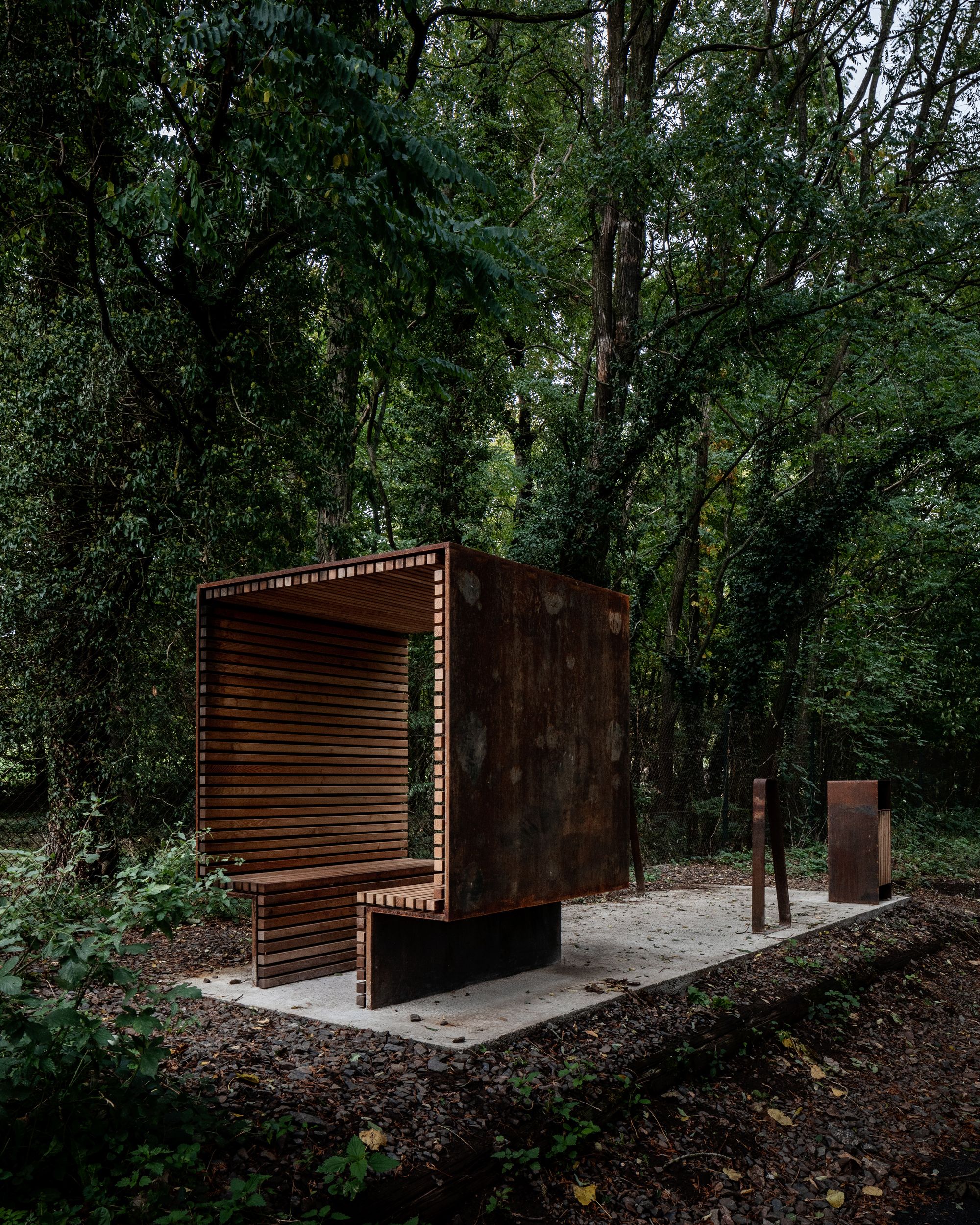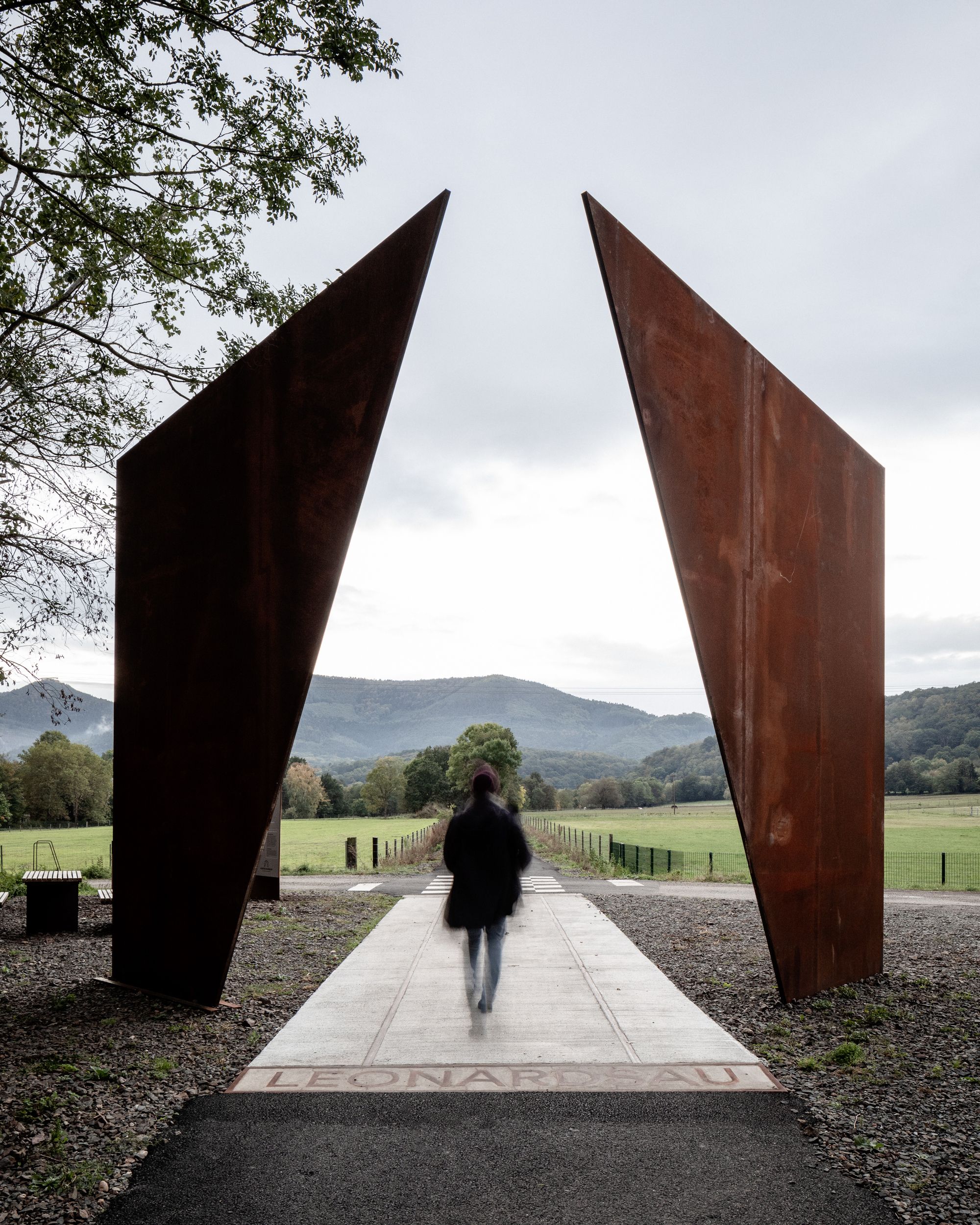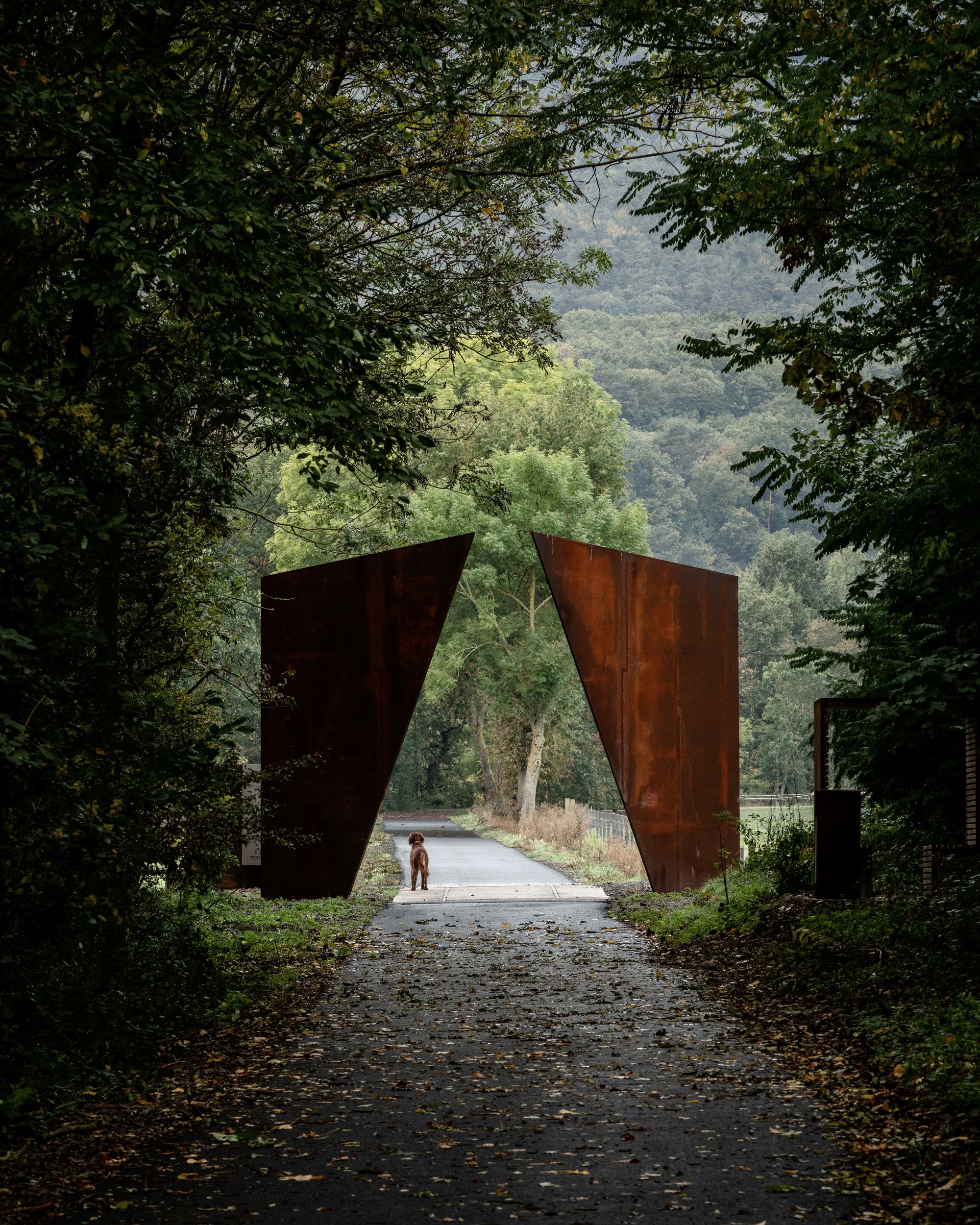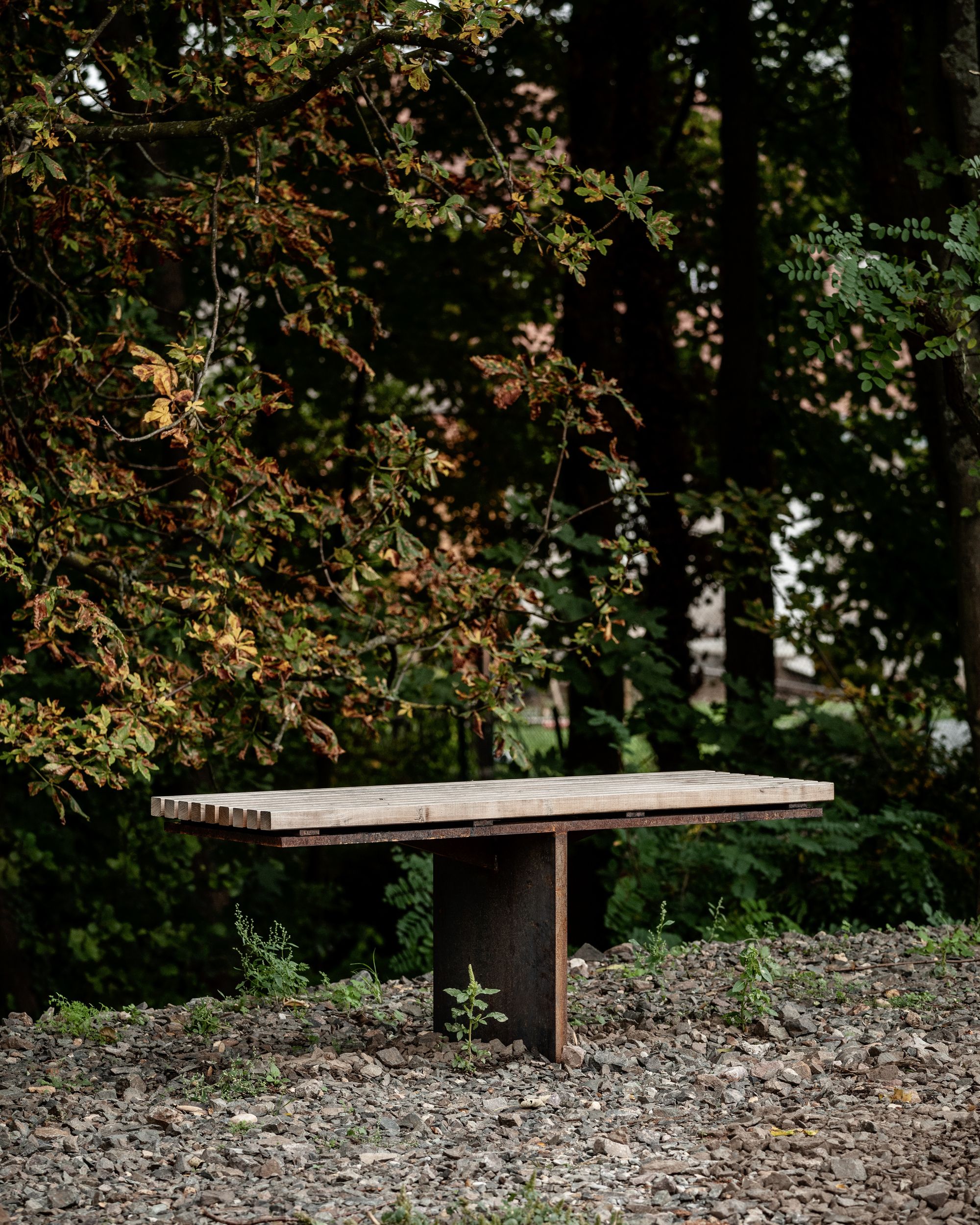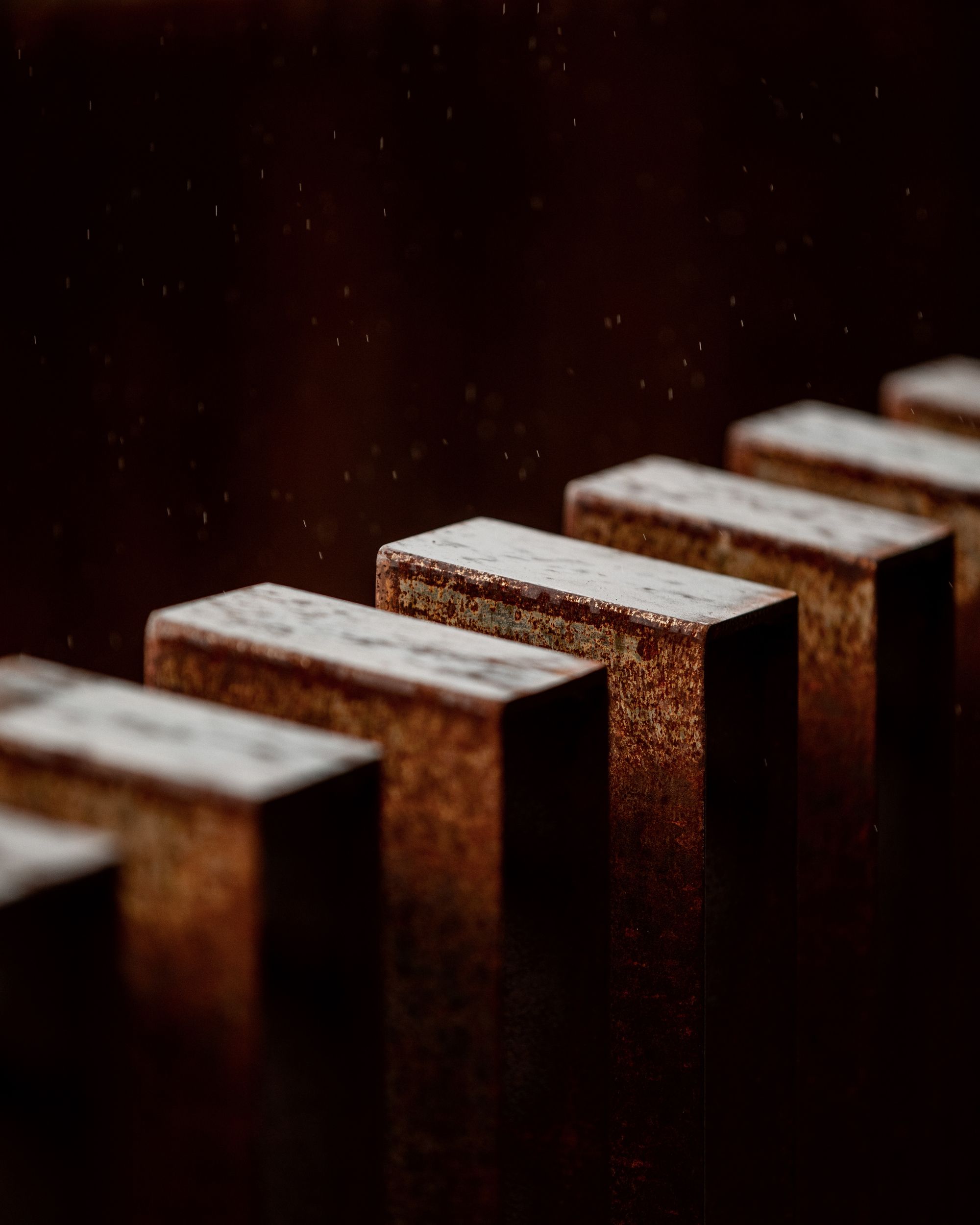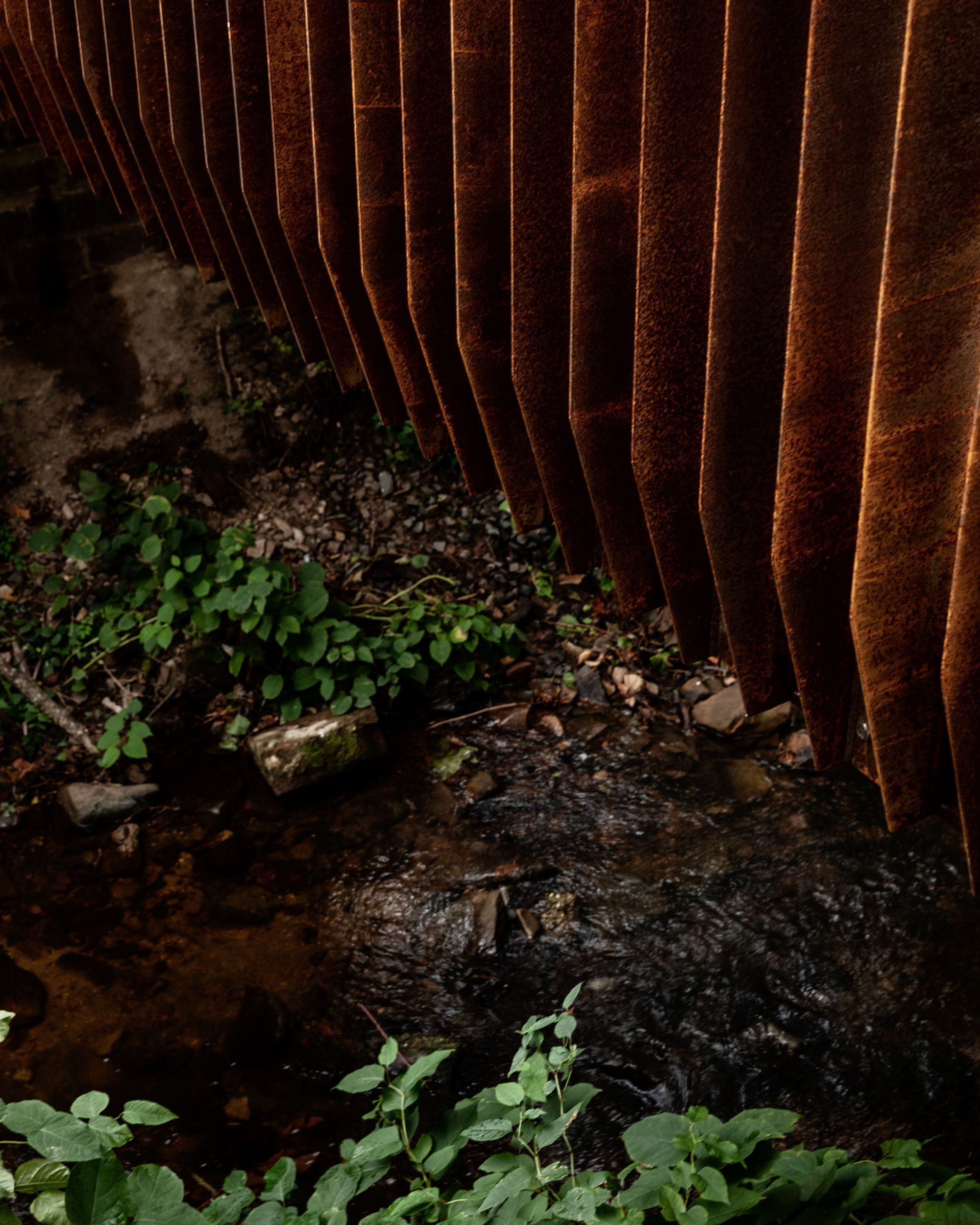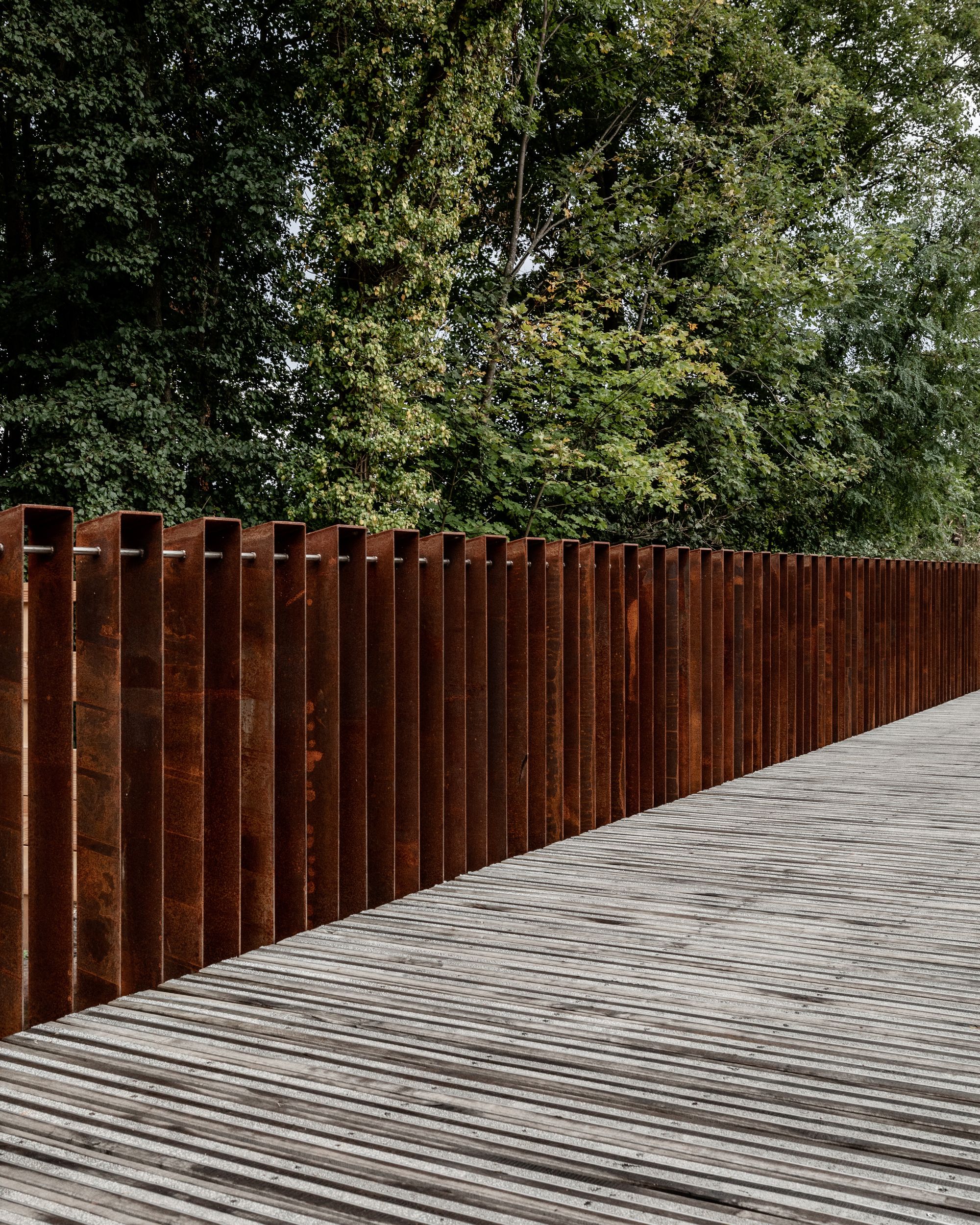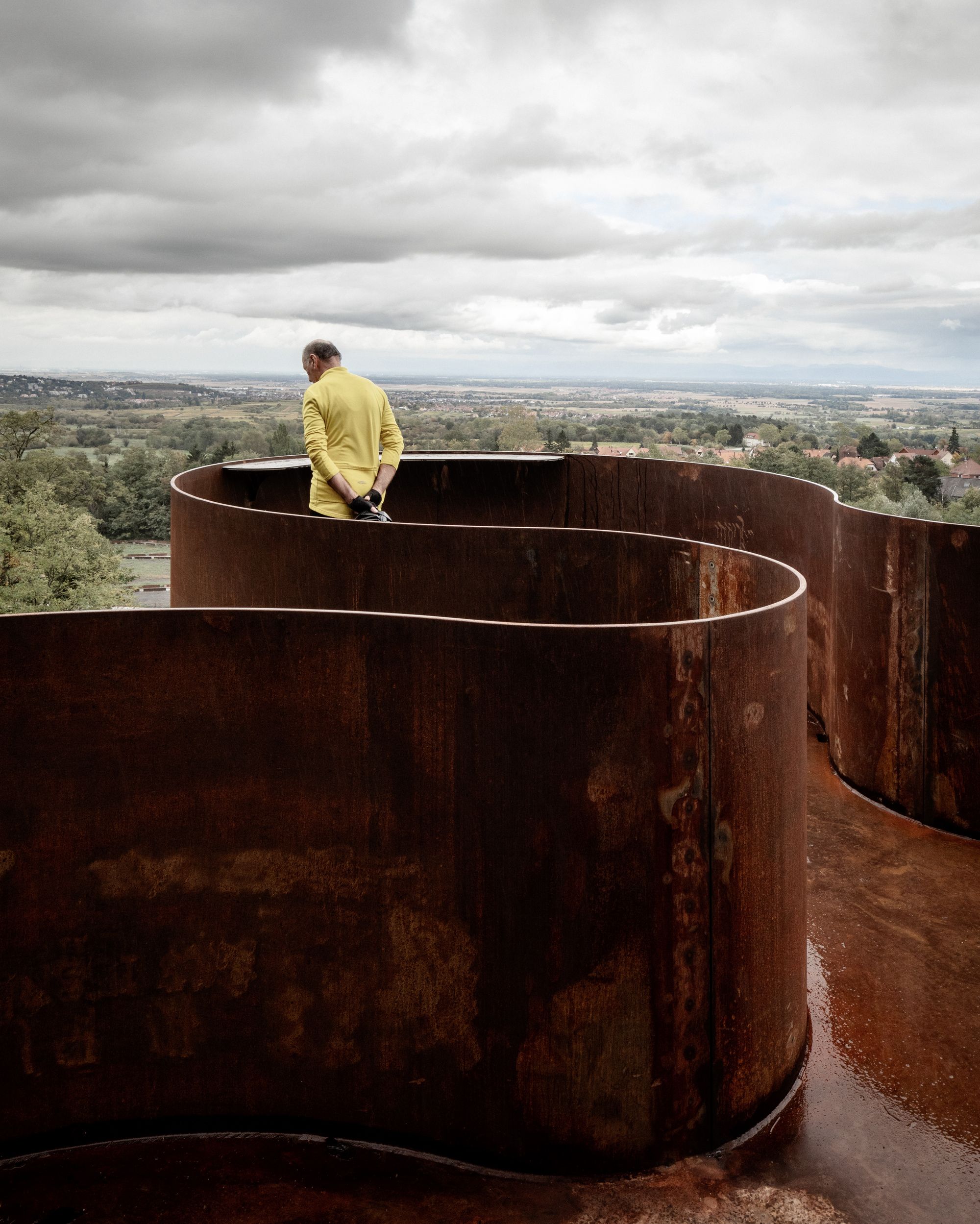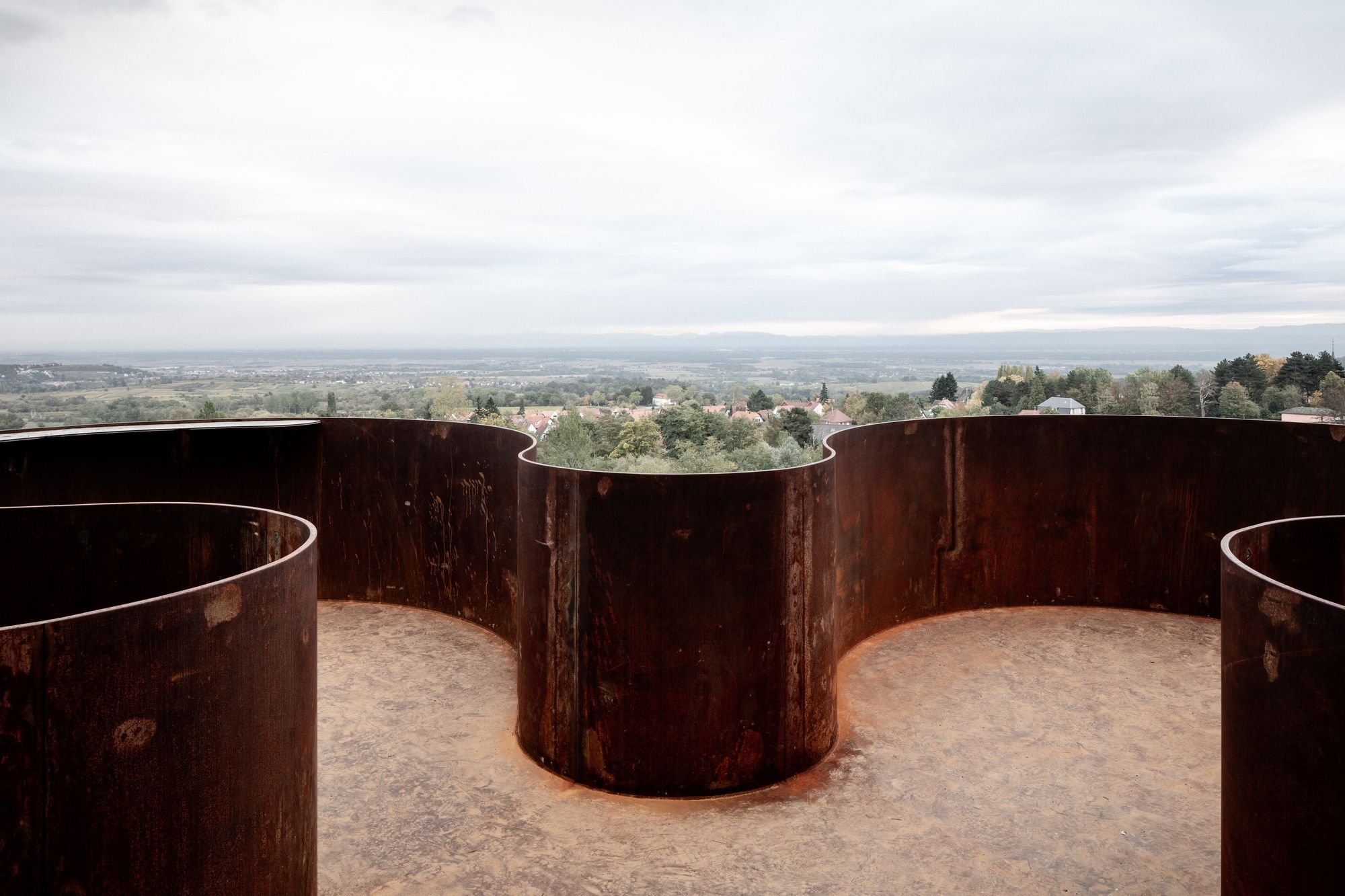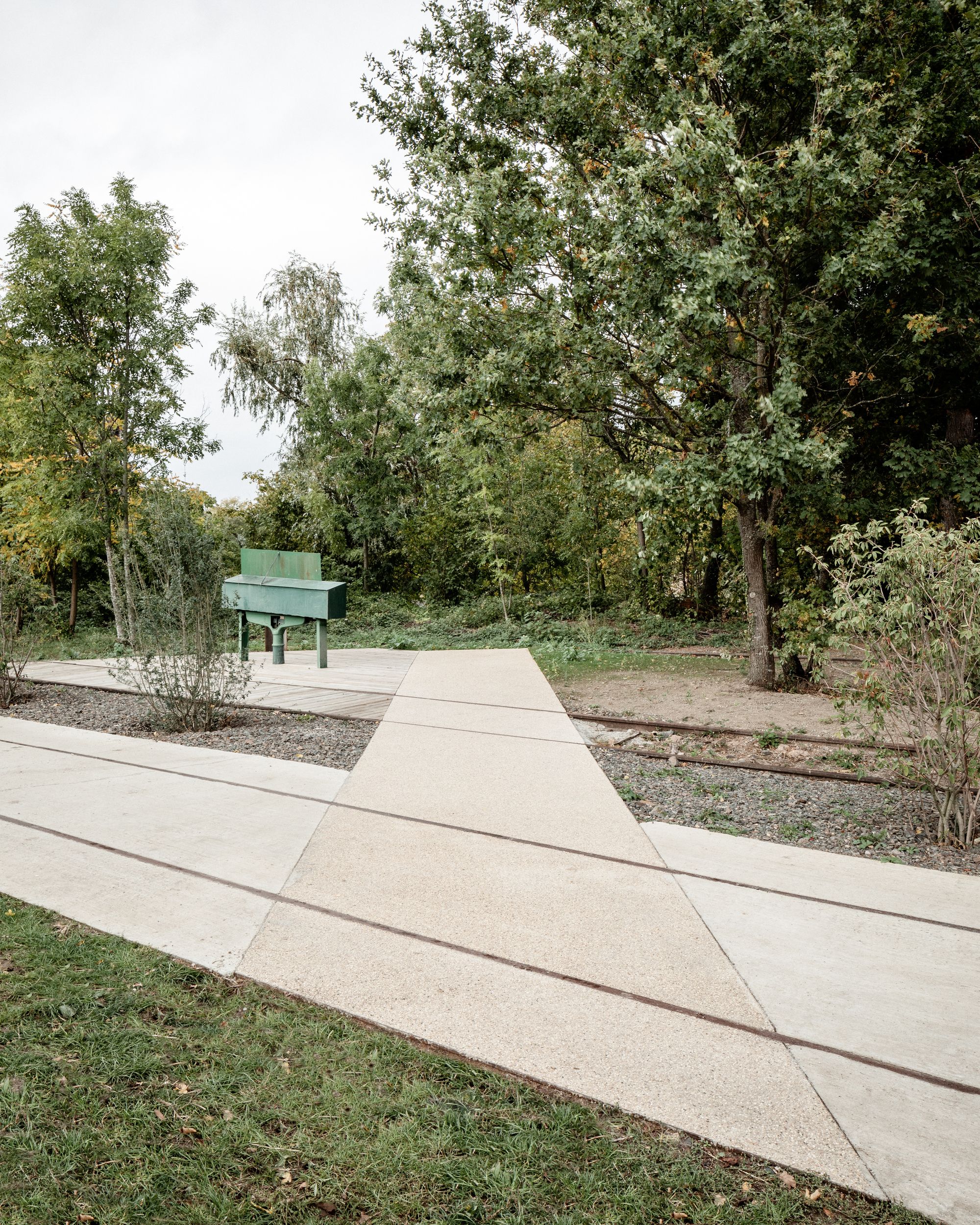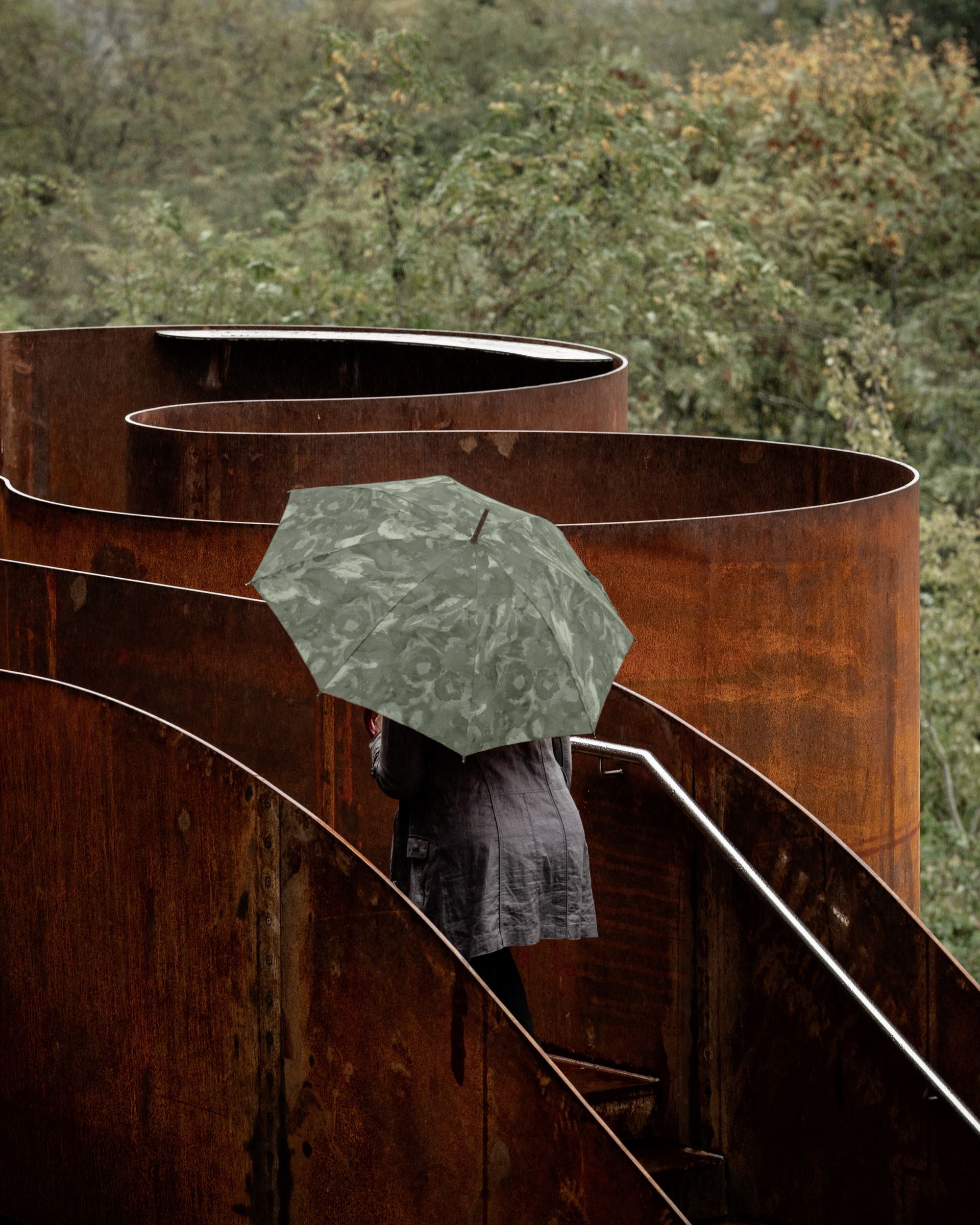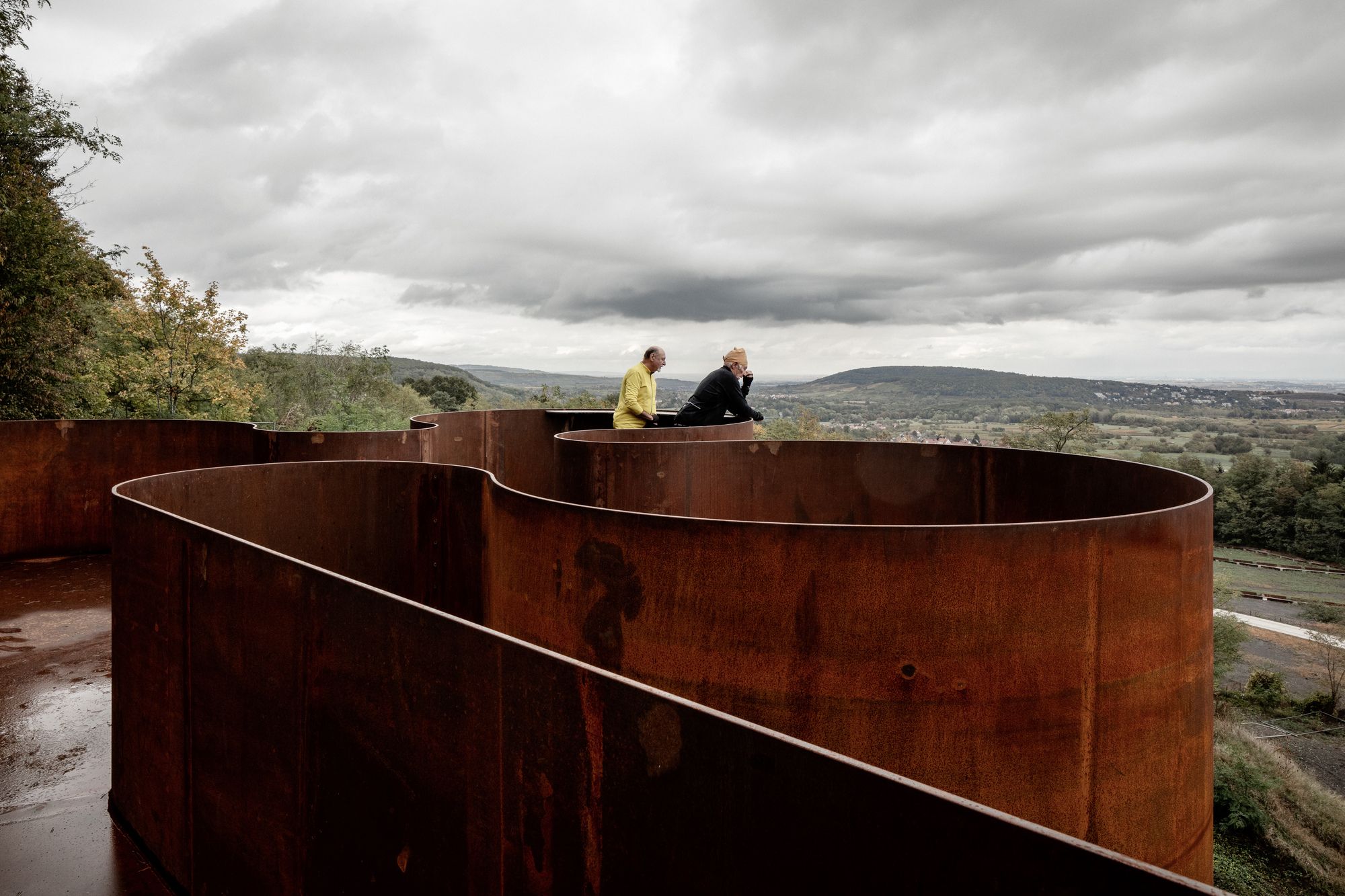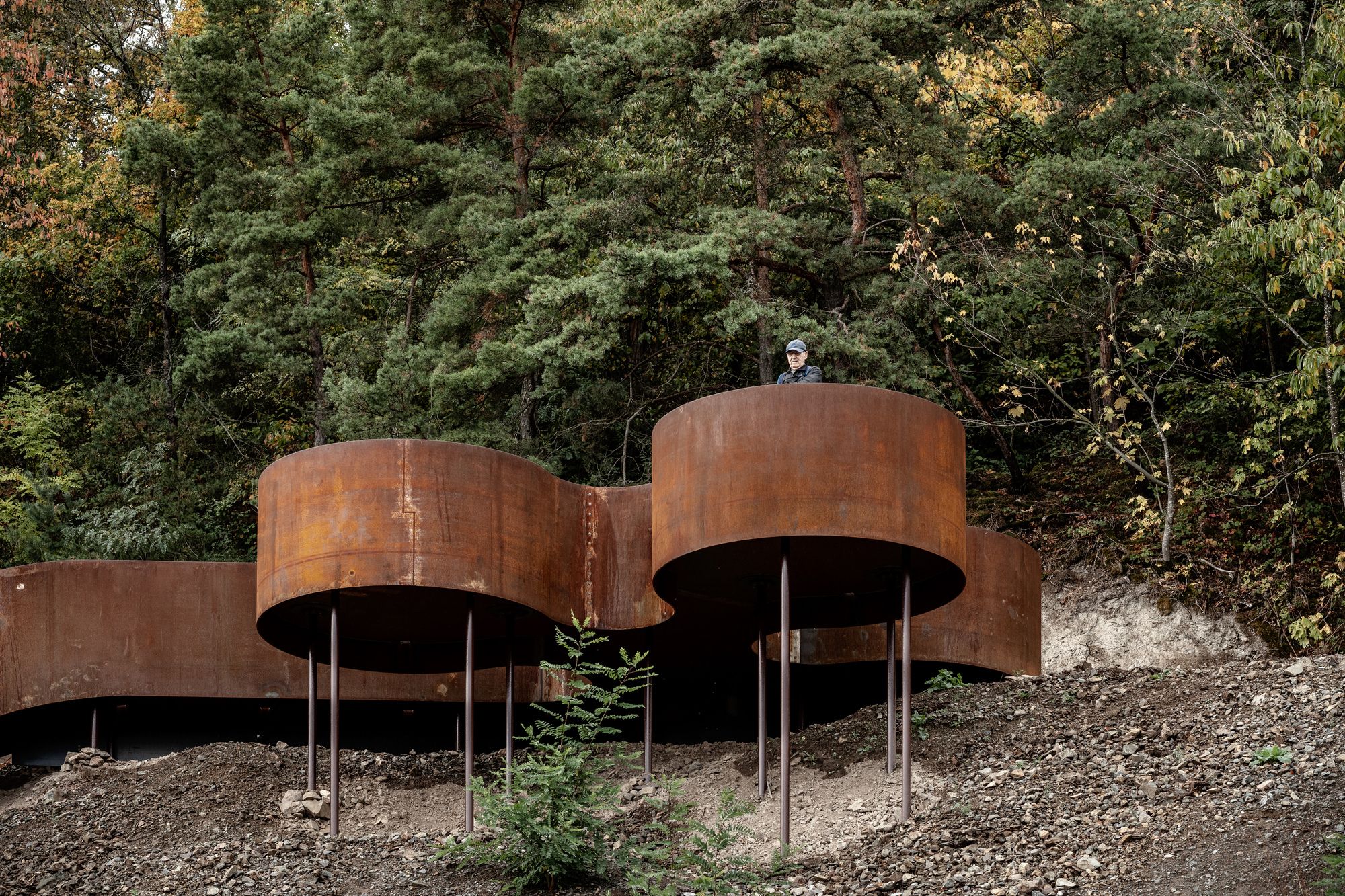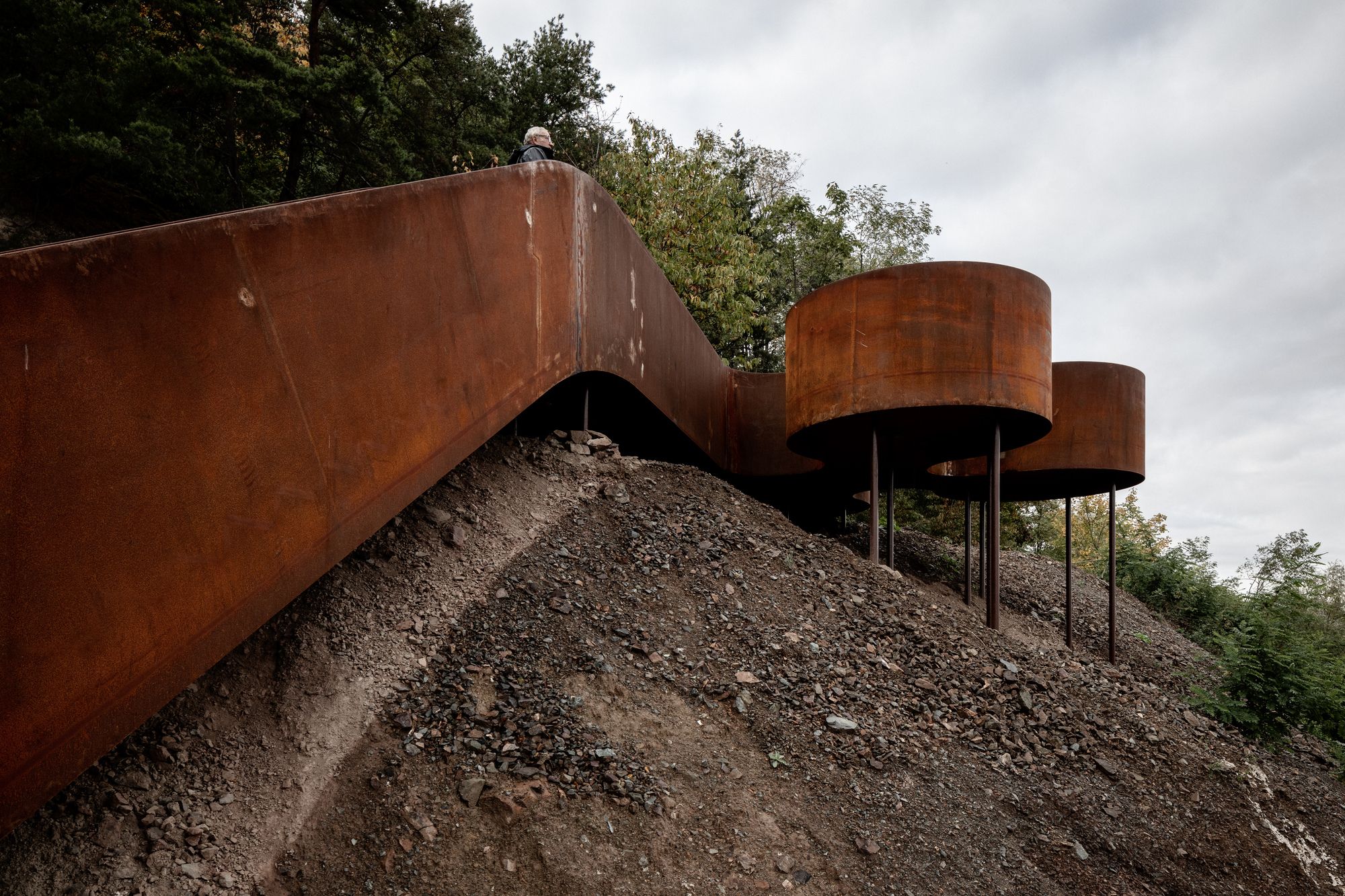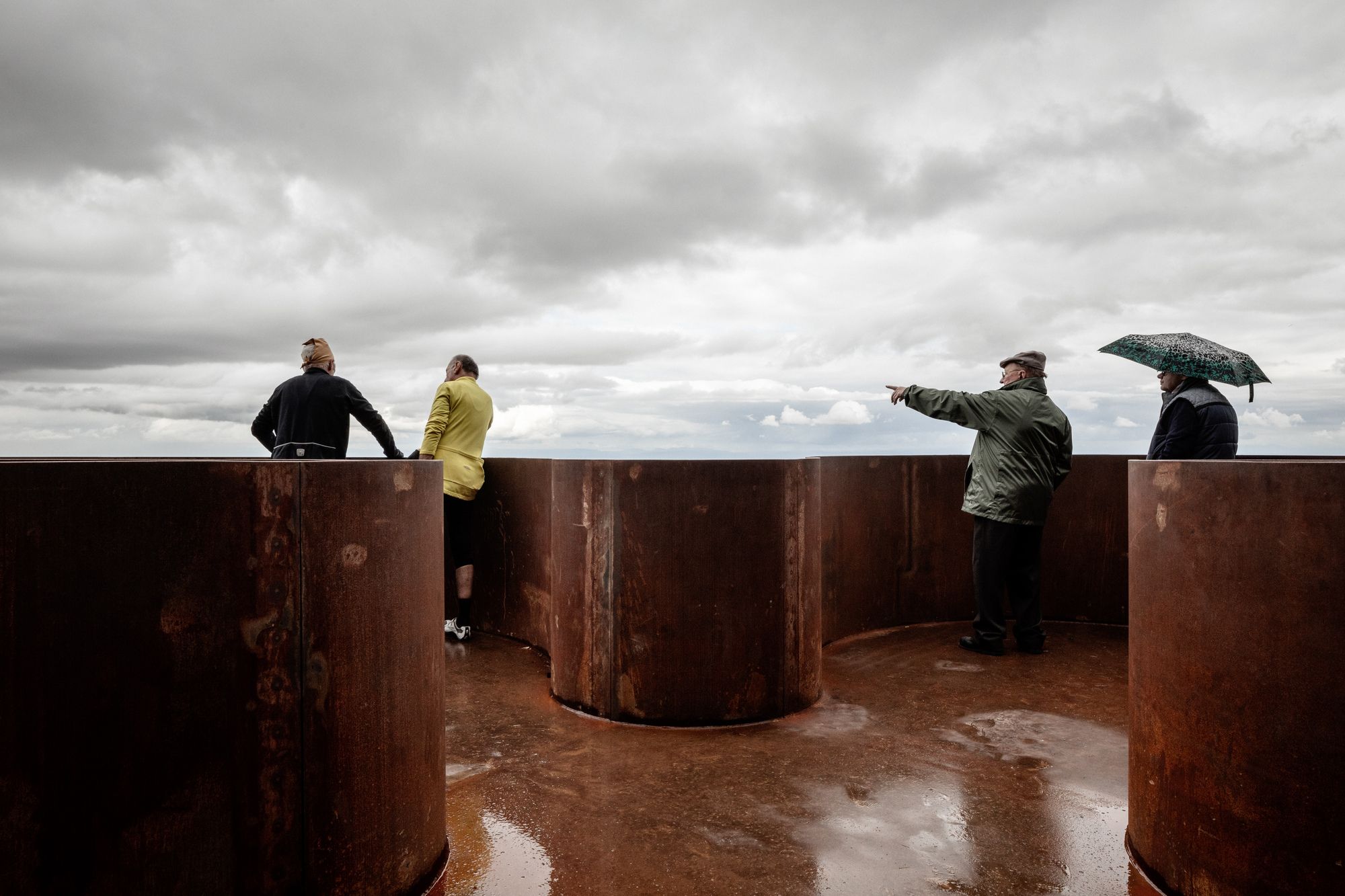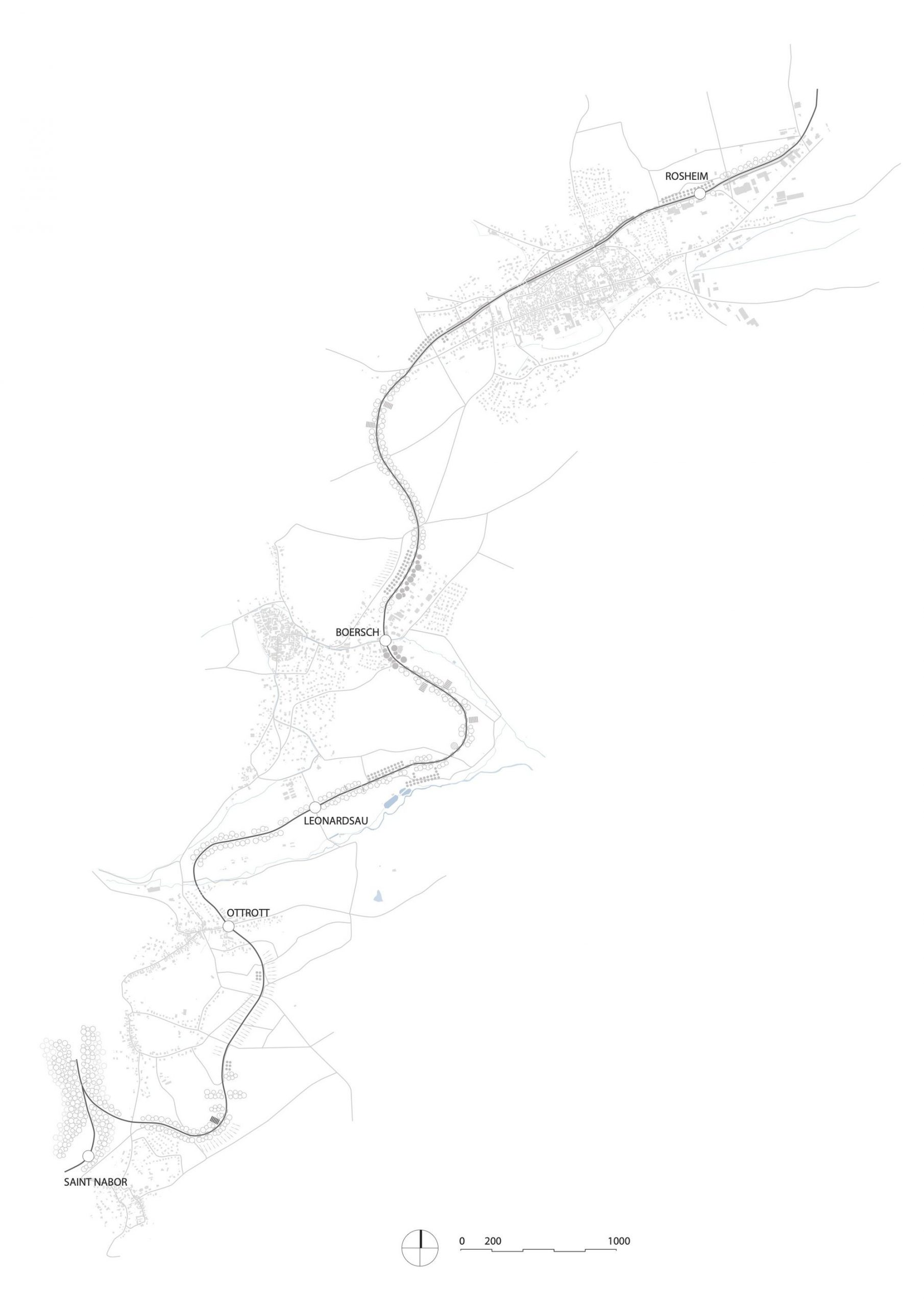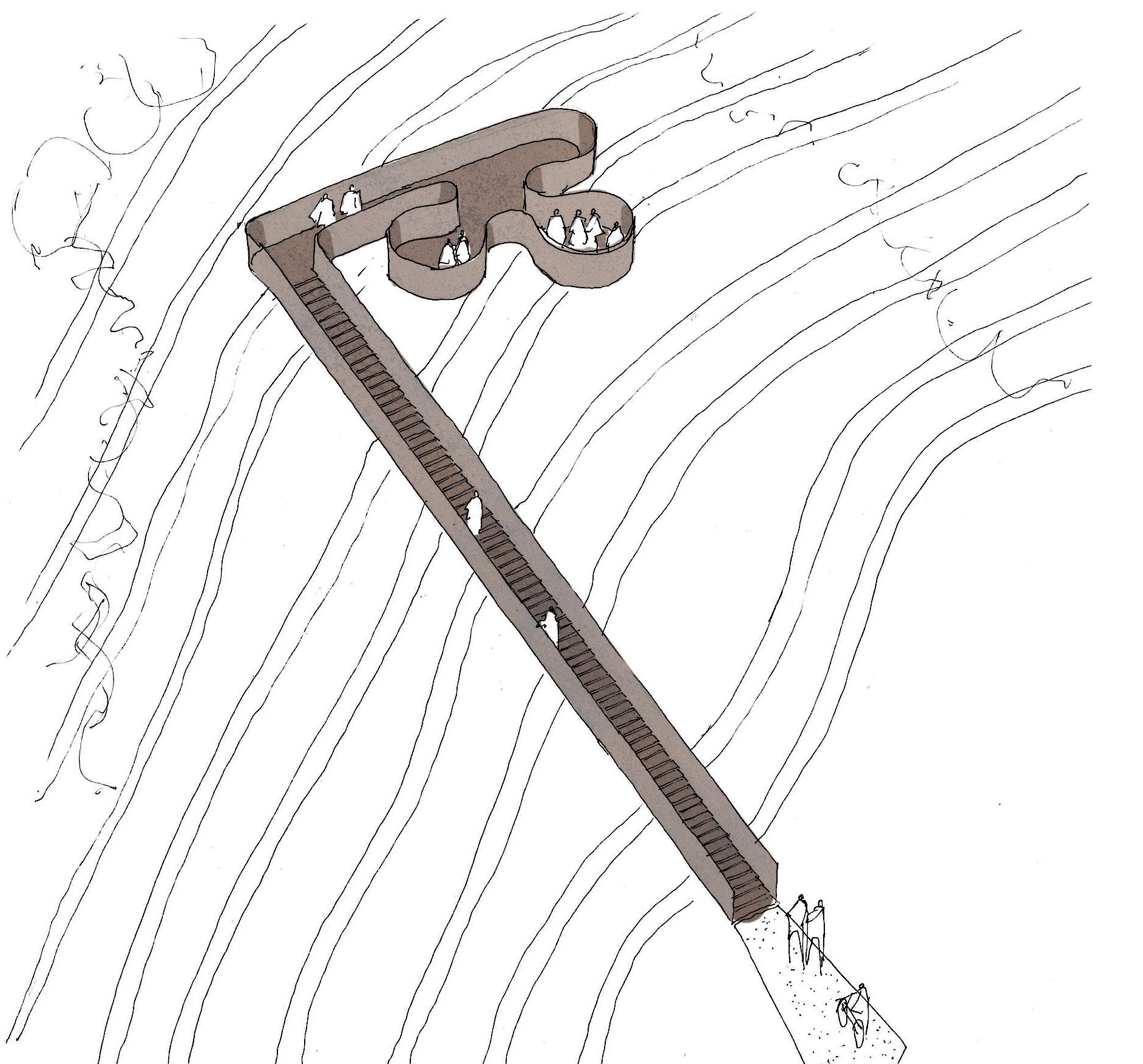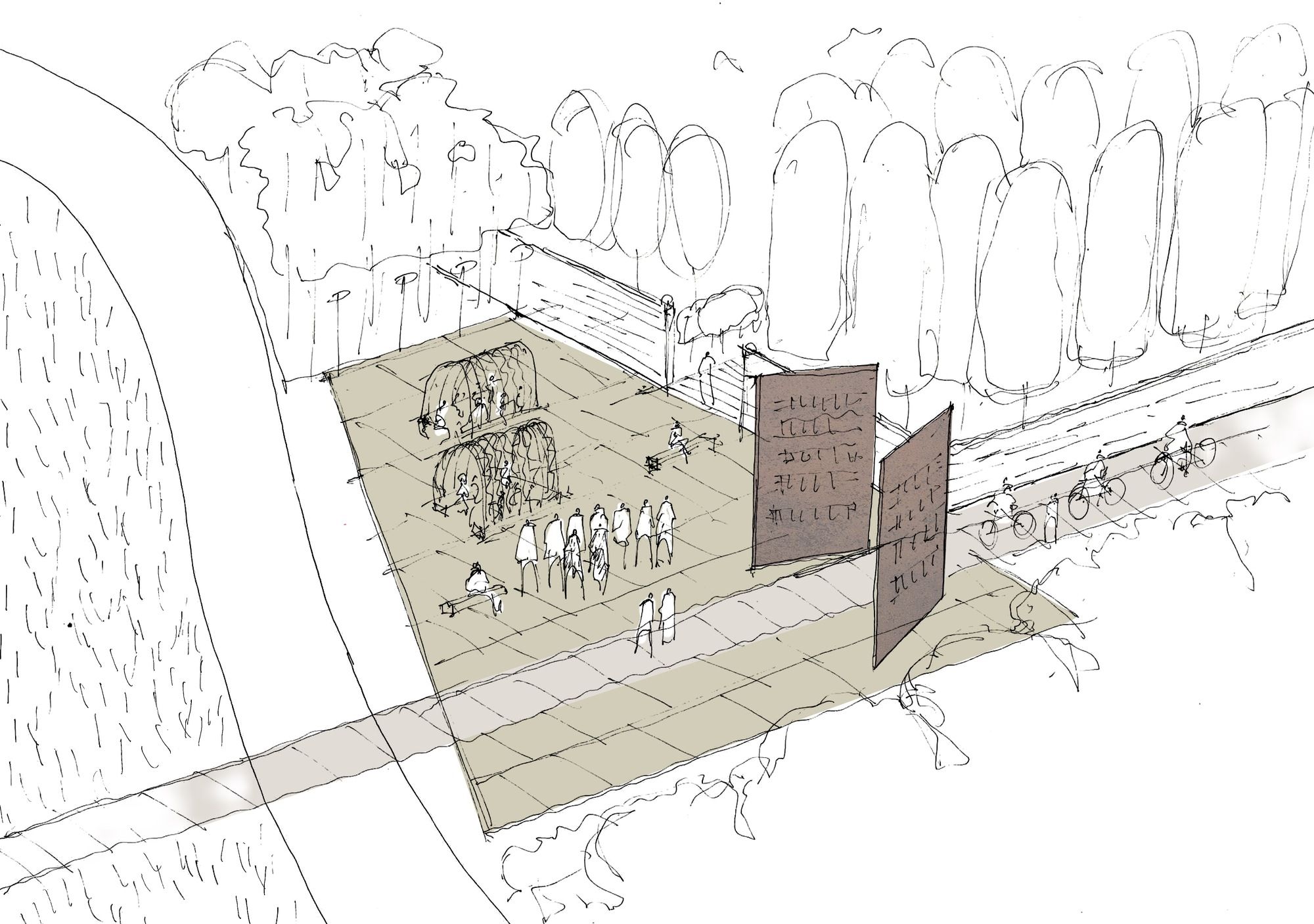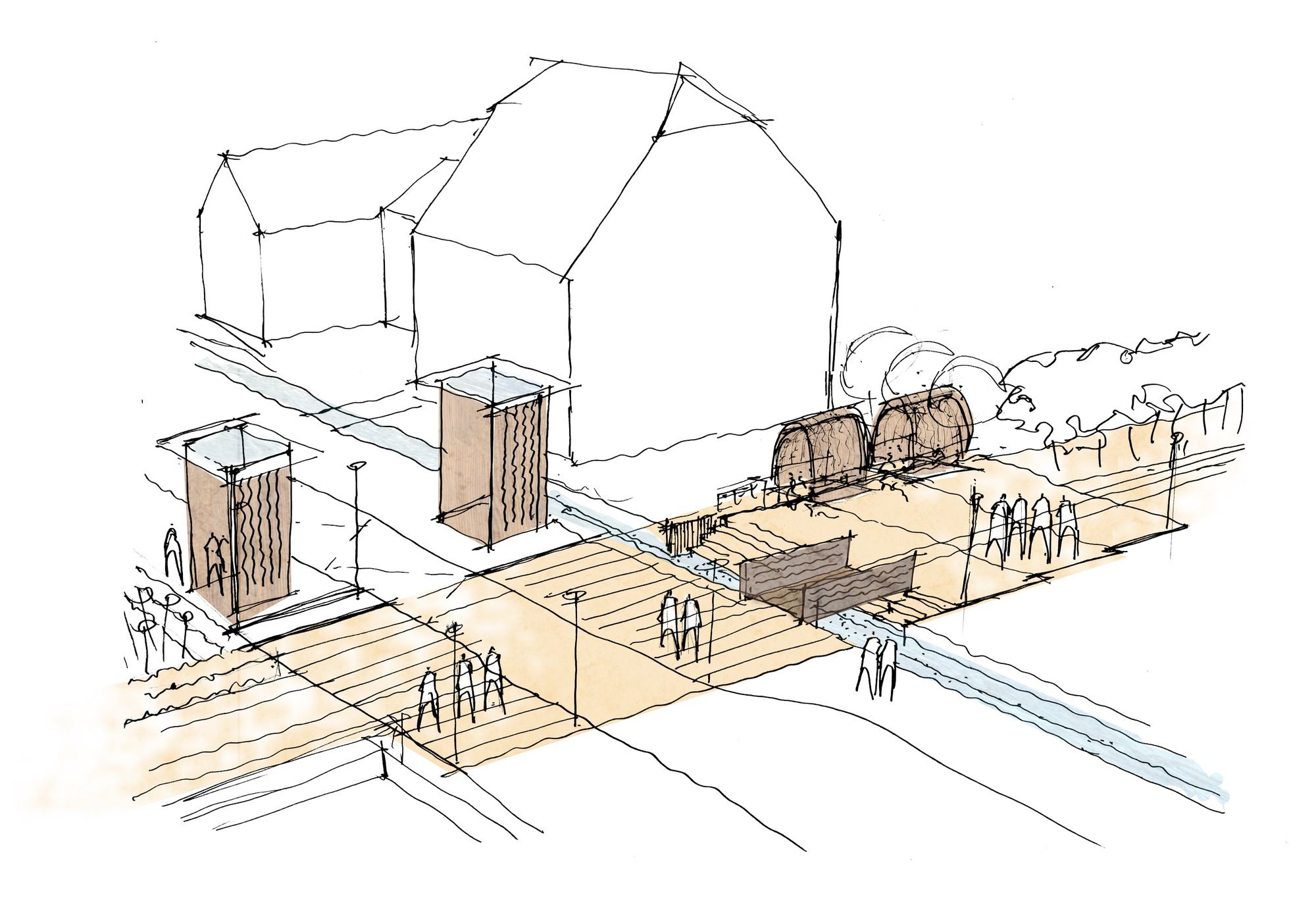Chemin des Carrières
Portes Bonheur – le Chemin des Carrières, the Quarries’ Track, is a lace undulating in the landscape, an invitation to travel as our ambition behind the reconquest of the Rosheim-St Nabor railway in Alsace, France. Ominous, sometimes hidden, the vestiges of the railway still mark the reading of the site. The desire to create a route to serve the quarries had to adapt to the undulating landscapes of the sub-Vosges hills and the very form of the tracing tells the history of the landscape and the men.
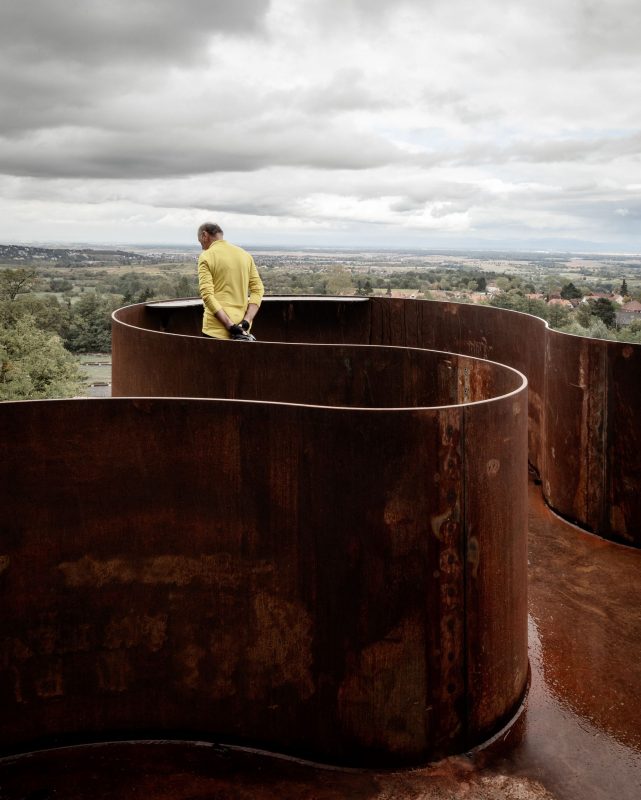
Photography by © 11H45
The journey to discover forgotten landscapes or to take a different view on everyday landscapes is addressed to both local users and tourists. Like the old track that offered a dual function (industrial and passenger transport), the route has a double vocation where the functional must rub shoulders with the imaginary of travel.
Along the 11km path goes a story, which the stops split into five chapters of different sequences of landscapes offering varied universes and highlighting remarkable sites. Unusual elements punctuate the way, aiming at awakening the visitor’s senses, and water is encountered repeatedly.
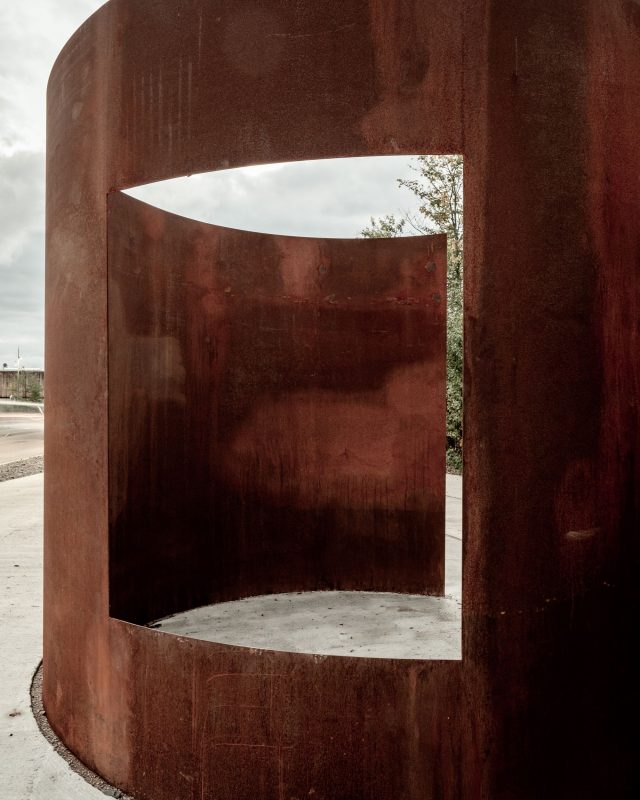
Photography by © 11H45
Rosheim tells the story of the past. Realized by intertwined circles in Corten steel, the pavilion has a labyrinthine character and play with the irregular concave and convex interior, which the visitors are free to roam. The train tracks are conserved in that area, benches are built, and openings are created to open or close the sculpture to chosen views of the surrounding landscape allowing for viewing, seating – reflexional and contemplation.
Boersch tells the story of water. The river, which historically allowed connection to the world and tells about the true cleanliness of a place. It is a dynamic element in the landscape, running to the ocean. We enlarge the riverbed and build a large open space amphitheater to access the water.
Leonardsau tells the story of the land. After a long green tunnel, two large corten steel plates amplify the opening effect at the end of the forest corridor to the open landscape, embodying a gate and opening a perspective towards Mont St-Odile, which develops the idea of discovery.
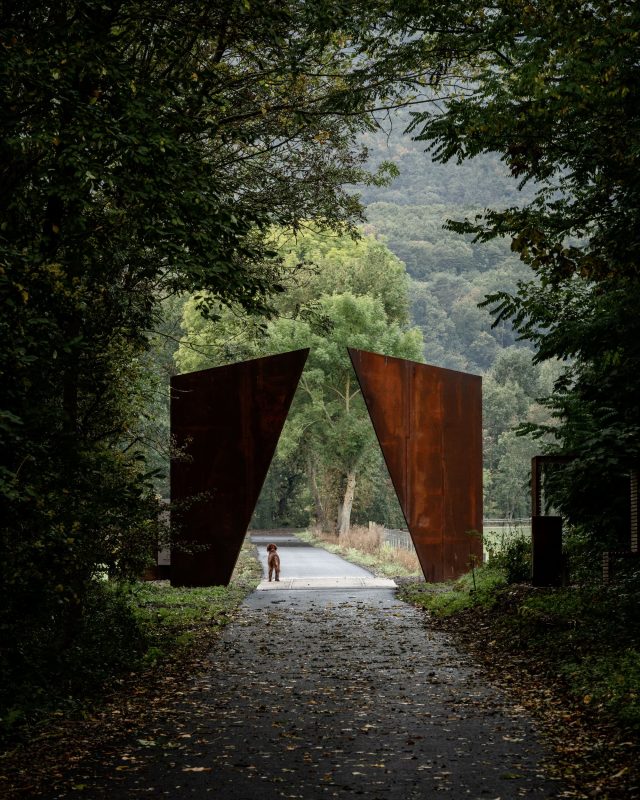
Photography by © 11H45
Ottrott tells the story of travel. The former train station, the stop materializes the history of the railway and highlight the presence of the heritage (balance, bridge, crane, pump…). In the fabric of housing buildings, the reservoir, symbolizing water, and concrete crossings connect housing to historical elements and landscape.
Saint-Nabor tells the story of luck. Closed for years and ongoing a “renaturalisation” process, the quarries symbolize the reconquest of the vegetation on a former industrial site. On one of the highest platforms created by the machine, will the traveler discover the most spectacular work: a promontory in corten steel offering a wide view on the valley of Rosheim and the plain of Alsace. From this viewpoint inspired by a four-leaf clover, the visitor will feel lucky to enjoy the view of such a beautiful territory.
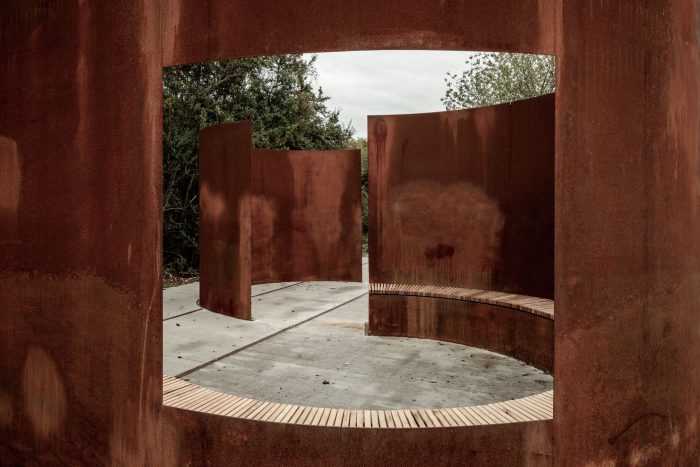
Photography by © 11H45
Project Info:
Architects: Reiulf Ramstad Architects
Location: Rosheim, France
Area: 3573 ft²
Project Year: 2019
Photographs: 11H45
